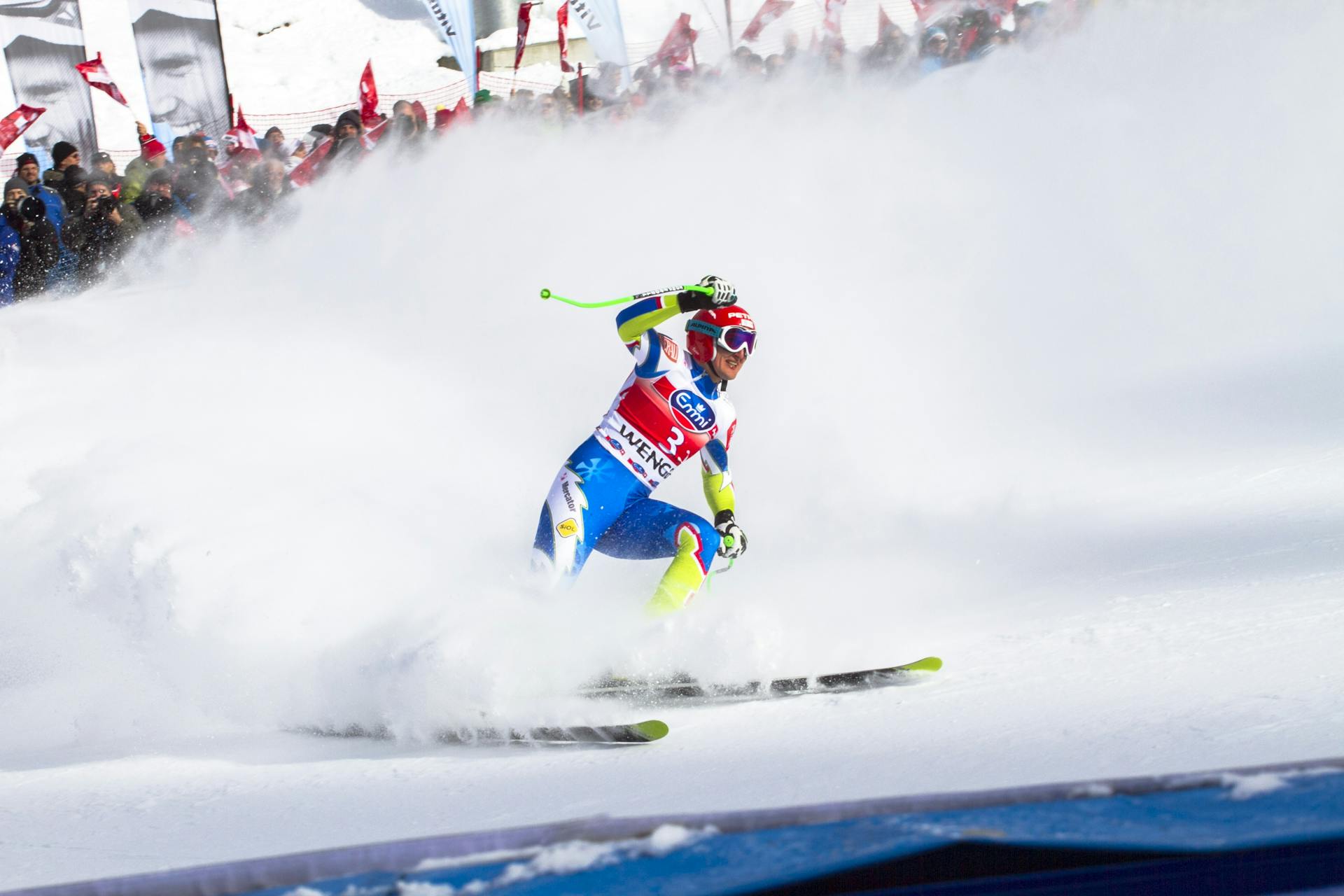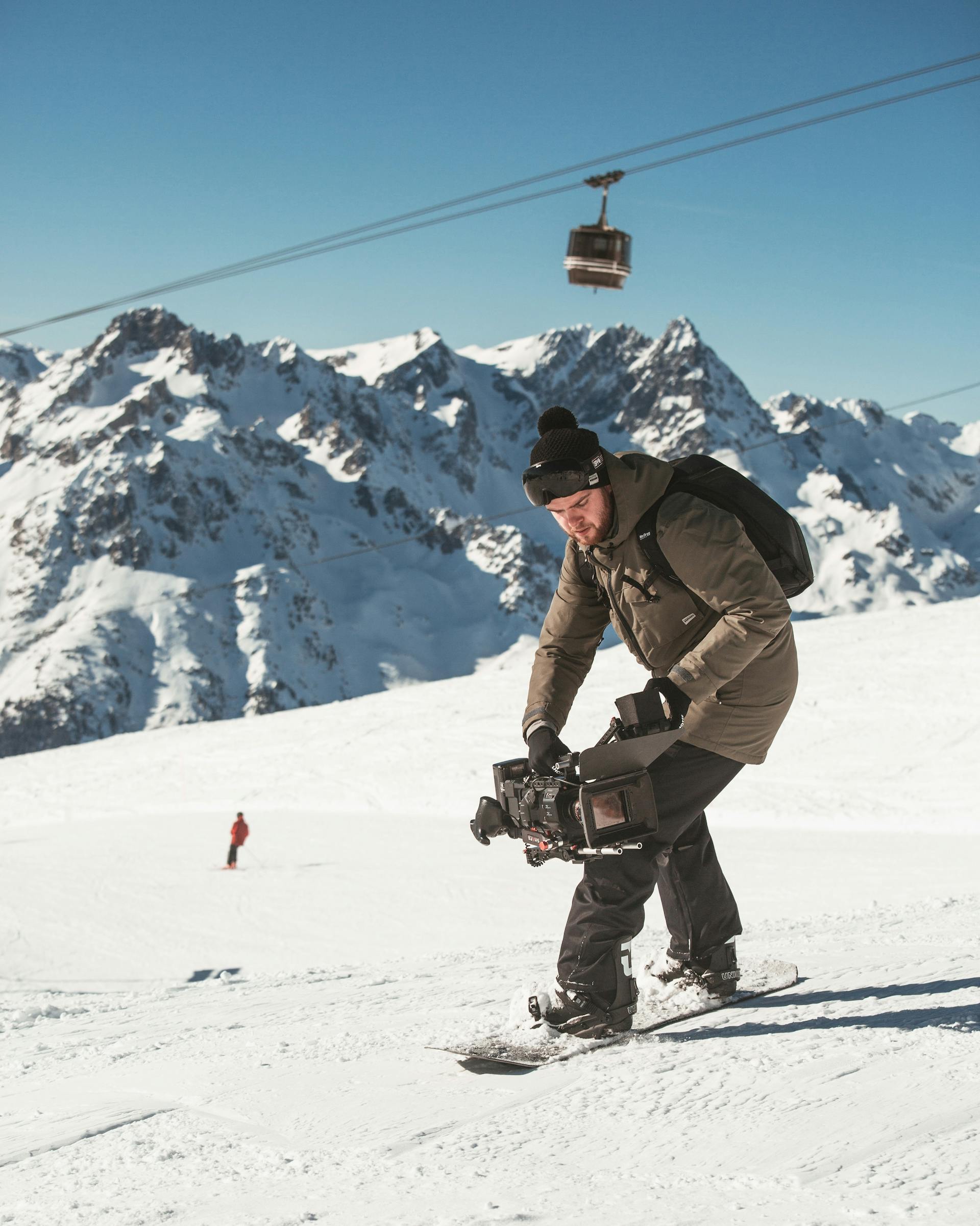The media coverage of the Special Olympics World Winter Games Turin 2025

Rosarita Cuccoli, PhD, Professor of Sport Sociology and Sociology of Journalism, University of Verona, Member of the Scientific committee of Sport and Citizenship advising on the news media
The 12th edition of the Special Olympics World Winter Games, which was held in Turin from 8 to 16 March 2025, set a good example for how to promote disability sport through the media. There is certainly room for progress, as always, but expert analyses often fail to notice positive change, as if critical thinking only consisted in highlighting the negative. From a media point of view, we are looking at a niche event compared to most international multi-sport events. As an Italian living in Italy, the host country, my attention prior and during the event was drawn to a series of advertising spots for the Games which were broadcast on national television channels. I am not referring to dedicated sports channels, but to generalist ones with much wider audience.
 The Special Olympics World Games are an international sporting event for participants with intellectual disabilities. They are organized every two years and alternate between Summer and Winter Games, in the same way as the Olympics and Paralympics. It was the first time that Italy hosted the Special Olympics World Games. The competitions took place in Turin, Sestrière, Bardonecchia and Pragelato from 9 to 15 March.
The Special Olympics World Games are an international sporting event for participants with intellectual disabilities. They are organized every two years and alternate between Summer and Winter Games, in the same way as the Olympics and Paralympics. It was the first time that Italy hosted the Special Olympics World Games. The competitions took place in Turin, Sestrière, Bardonecchia and Pragelato from 9 to 15 March.
The Opening Ceremony at Turin’s Inalpi Arena on March 8 was available live in 48 countries. In Italy, the Opening Ceremony was broadcast live on free-to-air channel RAI 2, ensuring a large local audience in the host market. The ceremony was seen on RAI 2 by more than 300,000 people. The official visit by Italian Prime Minister Giorgia Meloni on March 14 helped draw media attention to the Games. In addition to meeting a delegation of Italian athletes, Prime Minister Meloni attended some figure skating competitions at PalaTazzoli in Turin.
Nearly 500 media representing 47 countries registered to attend Turin 2025. Special Olympics’ Global Broadcast Partner ESPN sent 30 production staff. A global media hub with 28 sport and news journalists directly supported the Special Olympics delegations and their national media. This hub created broadcast packages tailored to individual nations, with interviews conducted in the native language of the respective delegations. The Special Olympics World Winter Games Turin 2025 also benefited from dedicated coverage through a website ( www.turin2025.org), adding to the Special Olympics’ institutional websites, as well as regular content posted on X, Facebook, Instagram, TikTok, YouTube and LinkedIn.
On March 18, shortly after the end of the Games, Italian sports newspaper Tuttosport published a full-page article about Special Olympics Motor Activity Training Program (MATP) skier Samuele Tron and his father Andrea, who is also his coach. As I point out in a recent monograph, Sports Journalism in Society (Bologna University Press 2025), dedicated to the social dimension of media sport, the coverage of disability sport is not a regular feature in the media, even less in the specialized sport press. The article in Tuttosport, written by Silvia Campanella, which focuses on the impact of MATP and the work of Samuele and Andrea to grow inclusive sport for all, is therefore worth of mention.
 Media coverage impacts sport in several ways. To name just two, it promotes participation in physical activity and presents inspiring role models. Its effects can also be negative, though. Media coverage can reinforce inequalities, instead of mitigating them, by focusing on mainstream sports while under-representing women’s sport and, indeed, disability sport. Media coverage is key because it influences people’s perception, in this case of sport. And when it comes to disability sport, the question becomes ever more complex. If disabled athletes are portrayed as superhuman, then an exception, this may paradoxically reinforce a sense of exclusion among the wider community of people with disabilities. Representations that push to pity and an excessive emphasis on the medical aspects can be just as damaging. One of the elements that positively impressed me in the media coverage of Turin 2025 was the general focus on the sporting aspects. The friendly atmosphere and social importance of the event were also praised in the coverage, but without presenting the event as a gathering of individuals in need of help on one side and generous rescuers on the other.[1]
Media coverage impacts sport in several ways. To name just two, it promotes participation in physical activity and presents inspiring role models. Its effects can also be negative, though. Media coverage can reinforce inequalities, instead of mitigating them, by focusing on mainstream sports while under-representing women’s sport and, indeed, disability sport. Media coverage is key because it influences people’s perception, in this case of sport. And when it comes to disability sport, the question becomes ever more complex. If disabled athletes are portrayed as superhuman, then an exception, this may paradoxically reinforce a sense of exclusion among the wider community of people with disabilities. Representations that push to pity and an excessive emphasis on the medical aspects can be just as damaging. One of the elements that positively impressed me in the media coverage of Turin 2025 was the general focus on the sporting aspects. The friendly atmosphere and social importance of the event were also praised in the coverage, but without presenting the event as a gathering of individuals in need of help on one side and generous rescuers on the other.[1]
Founded in 1968 by Eunice Kennedy Shriver, the Special Olympics global movement provides sports training and athletic competition in more than 30 Olympic-type sports for children and adults with intellectual disabilities. Today, the Special Olympics global movement involves more than four million athletes, including both people with intellectual disabilities and Unified partners (people without intellectual disabilities who play on the same teams as people with intellectual disabilities), in over 200 countries and jurisdictions. Timothy Shriver, Eunice’s third child, currently leads the Special Olympics International Board of Directors. Mary Davis, who was present in Turin, is the Chief Executive Officer of Special Olympics.
Turin 2025 brought together over 1,500 athletes and Unified partners from 101 territories and countries. Athletes competed in eight Olympic-style sports including alpine skiing, cross-country skiing, dance sport, figure skating, floorball, short track speed skating, snowboarding and snowshoeing. In addition to the organizers and partners, the event was made possible through the collaborative efforts of more than 2,000 volunteers, over 1,000 coaches and delegation officials, and 3,000 family members and friends. The next edition of the Special Olympics World Games, this time a summer version, will be held in 2027 in Chile, marking the first time a South American country hosts the event.
[1] On these aspects, I recommend Holland, Katherine, Steven K. Holland, and Justin A. Haegele. 2024. “Inspirational and Worthy of Charity: (Mis)Representations of Disability in Sport Media”. Communication & Sport 12 (2): 210–29.










 MEMBERSHIP
MEMBERSHIP CONTACT
CONTACT FACEBOOK
FACEBOOK